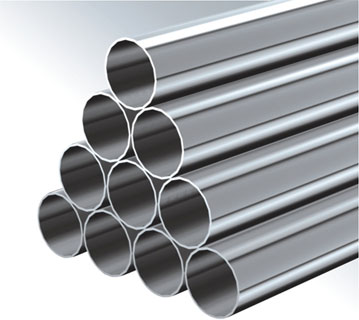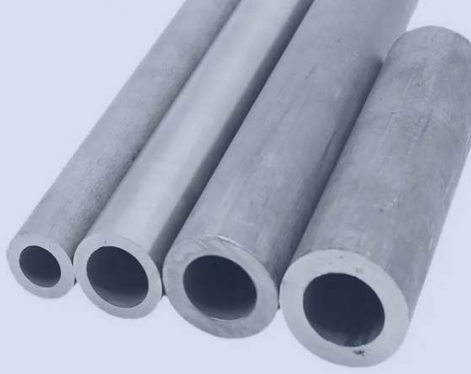Stainless steel seamless pipes are widely used in petrochemical, electric power, energy, aerospace and other fields due to their corrosion resistance, high temperature, high pressure and other properties. However, different application scenarios require different stainless steel materials, so how can we choose the appropriate stainless steel seamless pipe material?
1. Corrosion resistance
The corrosion resistance of stainless steel is one of its most important characteristics. Different application scenarios have different corrosive media, such as acid, alkaline, hydrochloric acid, etc. Therefore, it is necessary to choose stainless steel materials with corresponding corrosion resistance. For example, stainless steel 304/304L, 316/316L, etc. are used in situations where corrosion resistance is not high, while 904L, 254SMO, etc. are suitable for situations where higher corrosion resistance is required.

2. Strength and toughness
Different application scenarios have different strength and toughness requirements. For example, equipment working in high temperature and high pressure environments needs to have high strength and toughness. Pipes used in pharmaceutical, food, cosmetics and other industries require higher hygiene standards, and stainless steel 304, 316 and other materials are usually used as pipe materials.
3. Processing performance
The processing properties of stainless steel seamless pipes are also an important consideration. In some complex process links, higher performance materials need to be used, such as stainless steel with particularly good hardness and toughness such as 17-4PH stainless steel. However, due to its poor processing performance, this stainless steel is usually suitable for processing technology Highly demanding production areas.
4. Density and cost
Density and cost are also factors to consider when selecting stainless steel seamless pipe materials. There is not much difference in the density of different types of stainless steel. Generally, choosing lower density stainless steel can reduce the weight of the equipment and save costs at the same time.
Things to note when choosing stainless steel seamless pipes:
1. When purchasing, you should choose excellent products that have been uated by the Quality and Technical Supervision Bureau. Having long-term use testimonials and good reputation among customers is the most direct and effective way to purchase.
2. Check whether the color of the outer surface and the inner wall of the tube is bright and smooth, whether the thickness is uniform or rough. Generally, stainless steel welded pipes basically do not need to be inspected, while stainless steel seamless pipes are produced by cold drawing or hot rolling. Improper operation during the production process can easily cause uneven thickness, cracks on the pipe surface, etc., while rough surfaces are generally seamless. The tube is not polished, and it does not affect its use if there are no special requirements for appearance.
3. Before selecting stainless steel seamless pipes, you need to consider the purpose and use environment of stainless steel pipes.
To sum up, different usage environments require the selection of stainless steel seamless pipes of different materials to ensure the normal operation and required requirements of the equipment. Factors such as corrosion resistance, strength and toughness, processing performance, density and cost need to be comprehensively considered to rationally select materials.
1. Corrosion resistance
The corrosion resistance of stainless steel is one of its most important characteristics. Different application scenarios have different corrosive media, such as acid, alkaline, hydrochloric acid, etc. Therefore, it is necessary to choose stainless steel materials with corresponding corrosion resistance. For example, stainless steel 304/304L, 316/316L, etc. are used in situations where corrosion resistance is not high, while 904L, 254SMO, etc. are suitable for situations where higher corrosion resistance is required.

2. Strength and toughness
Different application scenarios have different strength and toughness requirements. For example, equipment working in high temperature and high pressure environments needs to have high strength and toughness. Pipes used in pharmaceutical, food, cosmetics and other industries require higher hygiene standards, and stainless steel 304, 316 and other materials are usually used as pipe materials.
3. Processing performance
The processing properties of stainless steel seamless pipes are also an important consideration. In some complex process links, higher performance materials need to be used, such as stainless steel with particularly good hardness and toughness such as 17-4PH stainless steel. However, due to its poor processing performance, this stainless steel is usually suitable for processing technology Highly demanding production areas.
4. Density and cost
Density and cost are also factors to consider when selecting stainless steel seamless pipe materials. There is not much difference in the density of different types of stainless steel. Generally, choosing lower density stainless steel can reduce the weight of the equipment and save costs at the same time.
Things to note when choosing stainless steel seamless pipes:
1. When purchasing, you should choose excellent products that have been uated by the Quality and Technical Supervision Bureau. Having long-term use testimonials and good reputation among customers is the most direct and effective way to purchase.
2. Check whether the color of the outer surface and the inner wall of the tube is bright and smooth, whether the thickness is uniform or rough. Generally, stainless steel welded pipes basically do not need to be inspected, while stainless steel seamless pipes are produced by cold drawing or hot rolling. Improper operation during the production process can easily cause uneven thickness, cracks on the pipe surface, etc., while rough surfaces are generally seamless. The tube is not polished, and it does not affect its use if there are no special requirements for appearance.
3. Before selecting stainless steel seamless pipes, you need to consider the purpose and use environment of stainless steel pipes.
To sum up, different usage environments require the selection of stainless steel seamless pipes of different materials to ensure the normal operation and required requirements of the equipment. Factors such as corrosion resistance, strength and toughness, processing performance, density and cost need to be comprehensively considered to rationally select materials.









